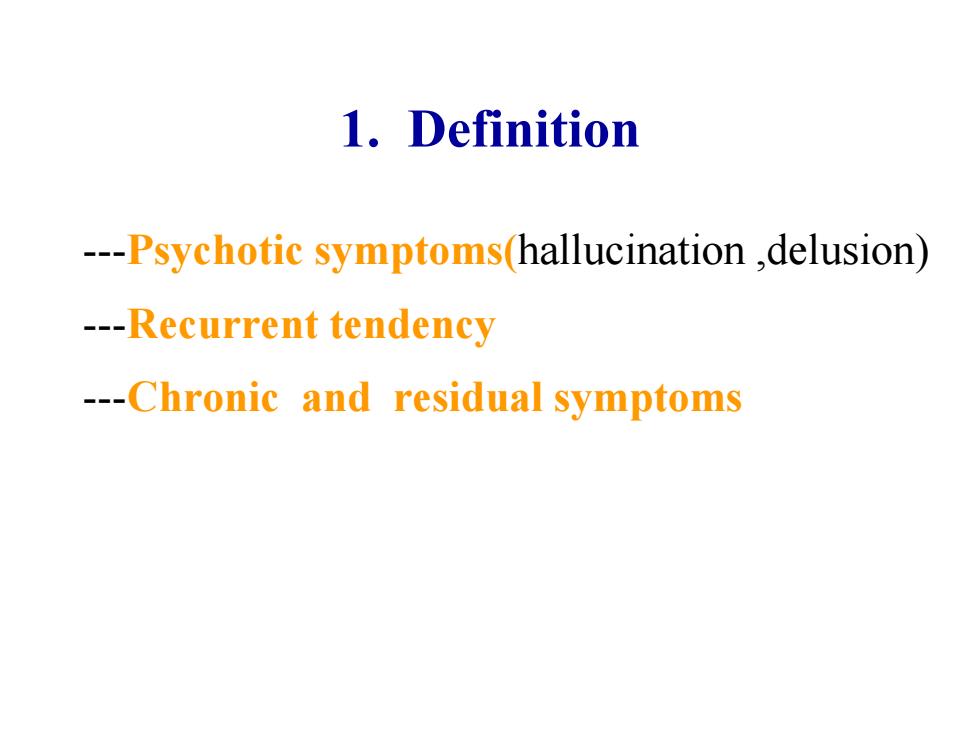
1.Definition -Psychotic symptoms(hallucination,delusion) -Recurrent tendency -Chronic and residual symptoms
1. Definition -Psychotic symptoms(hallucination ,delusion) -Recurrent tendency -Chronic and residual symptoms
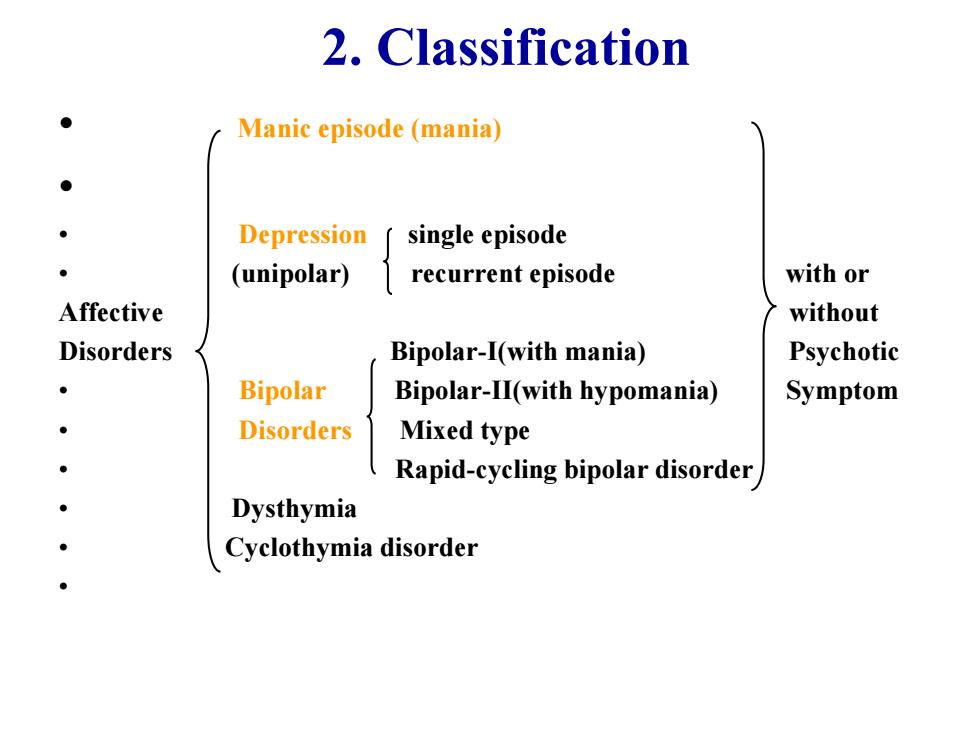
2.Classification ● Manic episode (mania) ● Depression single episode ● (unipolar) recurrent episode with or Affective without Disorders Bipolar-I(with mania) Psychotic Bipolar Bipolar-II(with hypomania) Symptom ● Disorders Mixed type ● Rapid-cycling bipolar disorder Dysthymia Cyclothymia disorder
2. Classification • Manic episode (mania) • • Depression single episode • (unipolar) recurrent episode with or Affective without Disorders Bipolar-I(with mania) Psychotic • Bipolar Bipolar-II(with hypomania) Symptom • Disorders Mixed type • Rapid-cycling bipolar disorder • Dysthymia • Cyclothymia disorder •
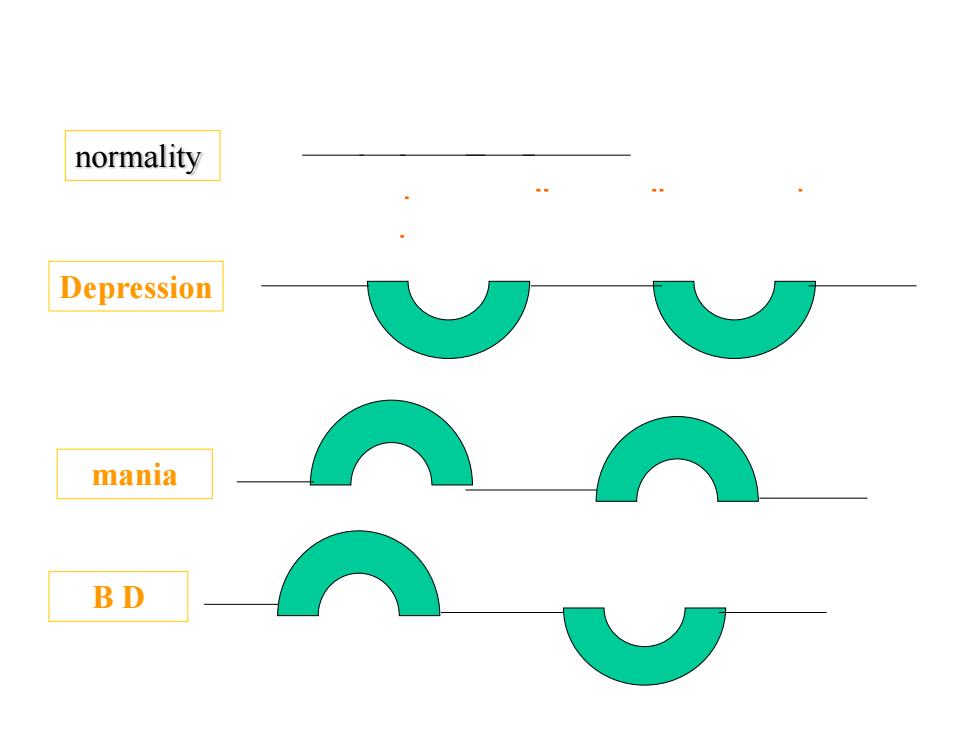
normality Depression mania BD
Depression mania normality B D
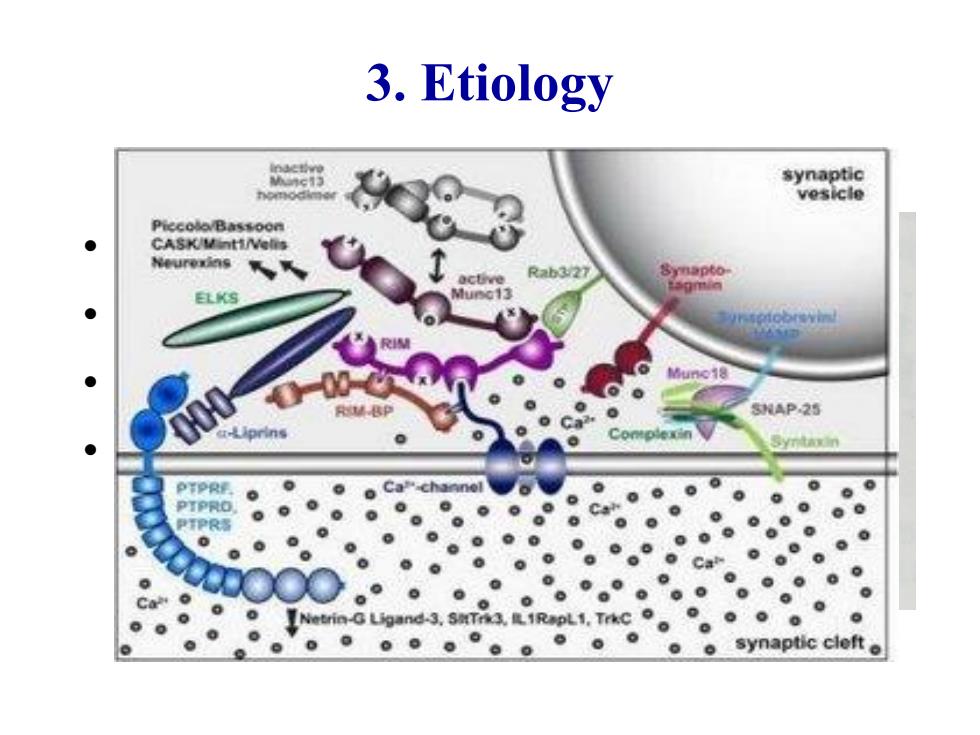
3.Etiology synaptic vesicie Piccolo/Bassoon CASK/Winti/el Rab3/27 ELKS SHAP.25
3. Etiology • 天生的吗?——遗传 • 后天形成的吗?——环境 • 是心理创伤和内心冲突的反应吗? • 是大脑中的神经递质发生改变了吗? 这是一个害羞的孩子, 我们得用产钳! 孩子,我告诉你,你将来的生 活肯定很艰难! 对于我来说,你的症状来自于你和你母亲的 永无休止的冲突„„
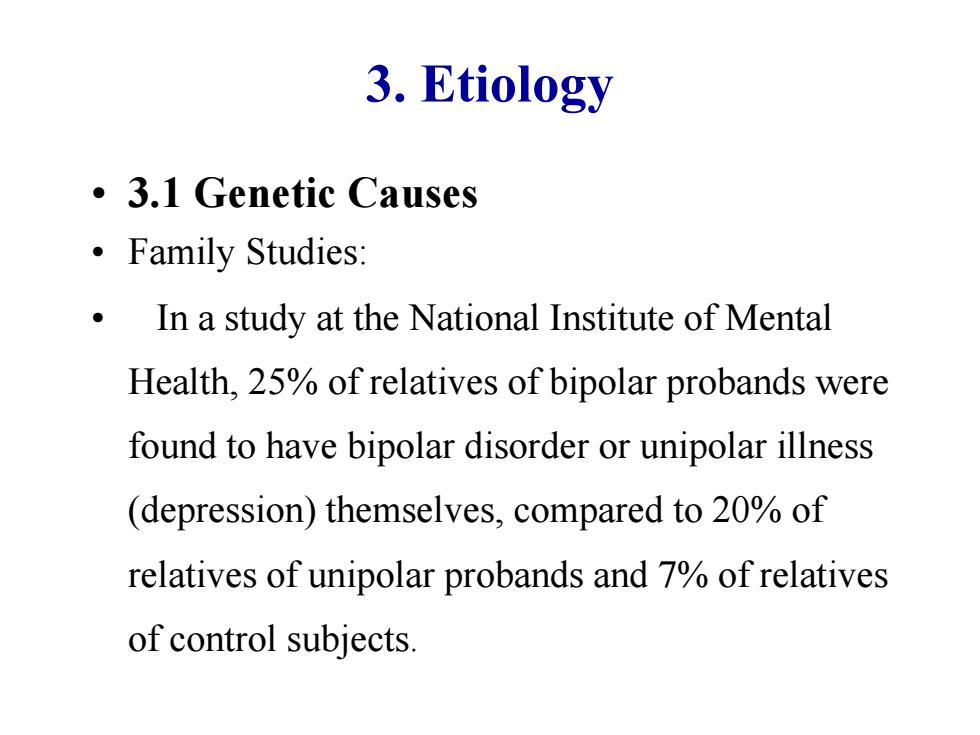
3.Etiology ·3.1 Genetic Causes ·Family Studies: In a study at the National Institute of Mental Health,25%of relatives of bipolar probands were found to have bipolar disorder or unipolar illness (depression)themselves,compared to 20%of relatives of unipolar probands and 7%of relatives of control subjects
3. Etiology • 3.1 Genetic Causes • Family Studies: • In a study at the National Institute of Mental Health, 25% of relatives of bipolar probands were found to have bipolar disorder or unipolar illness (depression) themselves, compared to 20% of relatives of unipolar probands and 7% of relatives of control subjects